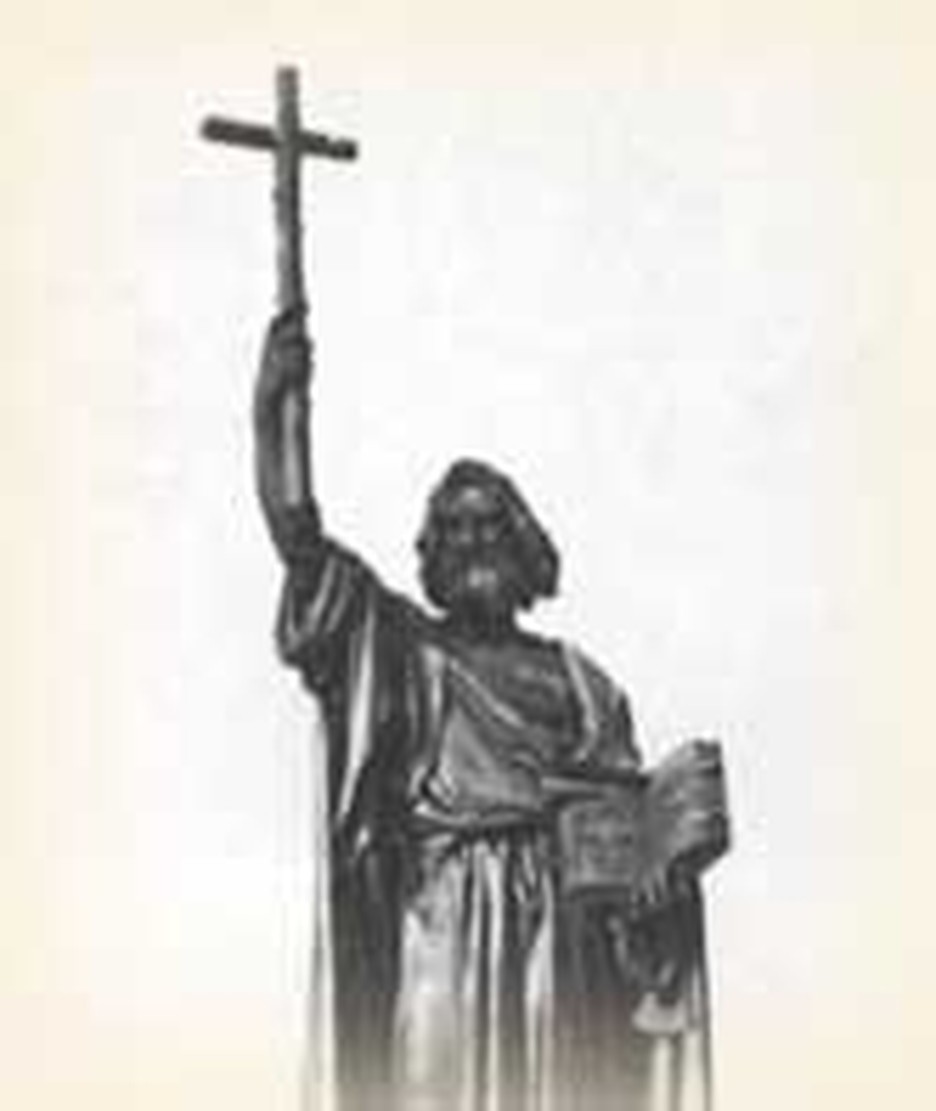
An elderly man sat quietly reading in his tent on this day June 5, 754. He was awaiting the arrival of a number of new converts whom he was to confirm. Suddenly a band of angry pagans fell upon him. Urging his coworkers not to fight, but to accept martyrdom for the kingdom of Christ, the old man braved the sword blows, defending himself only by protecting his head with the book he was reading. Fifty Christians were hacked to death. So perished St. Boniface, one of the most influential Englishmen of all time, along with his coworkers.
Born Wynfrith, Boniface became a monk and served in an English monastery until he was near forty. At this mature age, he determined to become a missionary to the German races. At first he worked in Frisia with another famous missionary, Willibrord. Willibrord wished for Boniface to take over his mission, but Boniface left to visit Rome before Willibrord could compel him to take up this narrow task.
Back from Rome, Boniface won renown among the Germanic peoples by chopping down Donar's sacred oak tree. It split into four pieces and fell with a crash at the first blows. The pagans expected that the gods would strike Boniface. When he emerged unscathed, they recognized the powerlessness of their pagan gods, and acknowledged that the Christian God was a greater than theirs. In an ironic gesture, Boniface used the wood to build a church.
Boniface entered upon a period of fruitful evangelism. So great was the response that he had to write home to England for more laborers. Dozens of English monks responded willingly and thousands of pagans were brought to Christ in the regions of Frisia, Hesse and Thuringia. The German Saxon tongue was so close to English Saxon that the Englishmen had little trouble being understood.
So great was the success of this holy man in converting pagans to the living Christ, that the pope appointed him Metropolitan of the region. As such he could create sees where needed and appoint bishops. He also founded monasteries including the famed one at Fulda.
Next in importance to his work as a missionary were his reform efforts in the Frankish church. It had grown corrupt. Through a series of synods and his personal appeals, he brought moral reform to the nation and closer ties to Rome. He had discovered that his best chance for keeping the church alive in Northern Europe was to tie it closely to the administrative authority of the Papacy. Boniface was well over seventy when he ventured on his last mission, back to the Frisians. They hacked him to death.
Bibliography:
- "Boniface, St." The Oxford Dictionary of the Christian Church. Edited by F. L. Cross and E. A. Livingstone. Oxford, 1997.
- Butler, Alban. Lives of the Saints. Various editions.
- McBeth, Leon. Men Who Made Missions. Nashville, Tennessee: Broadman, 1968.
- Mershman, Francis. "Boniface." The Catholic Encyclopedia. New York: Robert Appleton, 1914.
- Neill, Stephen. A History of Christian Missions. The Pelican History of the Church #6. Hammondsworth, Middlesex, England: Pelican Books, 1964.
- Various encyclopedia articles.
Last updated April, 2007.


